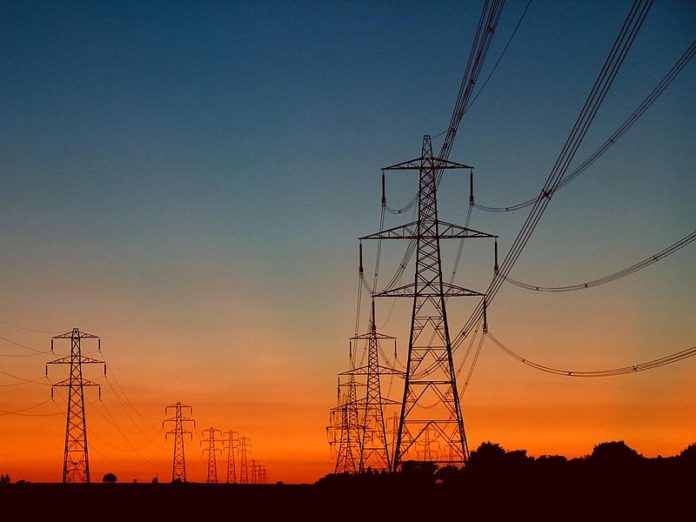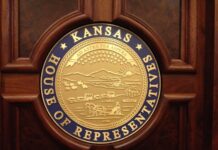A bill creating a task force charged with developing a new state energy plan has been set aside for this legislative session.
The bill, which passed out of committee Feb. 25, was not among the approximately two dozen bills “blessed” by Republican leadership to remain in play this year after the midpoint of the legislative session. It still could be considered next year.
The legislation called for creating a 25-person task force — 17 voting members and eight nonvoting members — to develop a comprehensive state energy plan by January 2023.
The bill would have directed the task force to assess strategies for current and future energy technologies as well as enhance energy efficiency.
It also called on the committee to craft a plan for electric vehicle infrastructure as part of an effort to develop options for biofuels, alternative fuels and petroleum fuels.
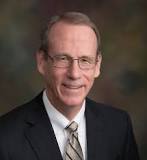
Republican state Rep. Mark Schreiber of Emporia said he thought it would take time to build support for developing a state energy plan.
“It’s something the state overall needs to address,” Schreiber said in an interview.
“This is not a rate bill or a climate bill. It’s really an economic development tool because of the technologies that are quickly developing across the country.
“Hopefully, Kansas can be prepared for them when they do arrive rather than reacting when they show up,” he said.
While the bill moved out of committee, there was some skepticism that the legislation was a back-door attempt to adopt Green New Deal policies.
Republican state Rep. Les Mason of McPherson told the Utilities Committee last month that he supported a long-range energy plan but expressed reservations.
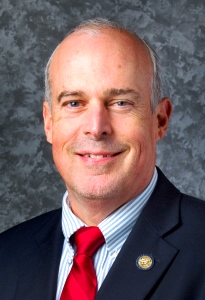
“I do have a nagging fear and worry in the back of my mind that this could be a Trojan horse for the Green New Deal, and that is not a direction I would want to see it go.”
Republican state Rep. Leo Delperdang of Wichita said he was concerned about the possible makeup of the task force.
“I am just concerned with the possible makeup and stacking this task force in one direction versus another,” Delperdang said.
“I’d love to see it set up where it’s truly neutral composed of people who truly know the industry, and I’m not convinced that’s the case,” he said.
Democratic state John Carmichael of Wichita said the bill was not drawn up as “some way to sneak in something that was dreamed up by snowflake liberals back East or maybe out on the West Coast.”
Carmichael said the goal of the plan was to put Kansas on a competitive playing field for capital investment with other states that have an energy plan.
He also said the goal was to develop a diverse energy portfolio for Kansas as fossil fuels are gradually depleted over time.
The bill was opposed by the Kansas Industrial Consumers Group, a coalition of large power users in Kansas such as Cargill, Goodyear Tire and Spirit AeroSystems.
The group said the task force didn’t advance the goal of achieving regionally competitive electric rates.
Rather, the group said the task force provided “a roadmap for justifying additional, and potentially unnecessary, investment — all paid for by Kansas consumers.”
An electric rate study done last year by London Economics International recommended that the Kansas Legislature create an energy plan for the state.
“The plan need not be overly long or complicated but can help the state determine what its
energy goals are, how to achieve them, and at what cost,” the study said.
“The State policy objectives should extend to all entities serving electric customers in the state, including utilities, munis, and co-ops,” the study said.
The study reported that all states, except South Dakota, have a form of an energy plan, but only four of the states have legislatively mandated plans.
States with legislatively mandated energy plans include Colorado, Missouri and North Dakota, the study said.
There has not been an energy plan in Kansas since the abolition of the Kansas Energy Council in 2008, the report said.
Last year, the Legislature voted down a proposal by Democratic Gov. Laura Kelly to carve the Energy Office out from the Kansas Corporation Commission.
The governor wanted to create an independent agency that would be the first step toward forming a state energy plan.
Kansas is one of three states nationally that houses its energy office with utility regulators, which the governor’s office says limits what it can do to develop new policy.
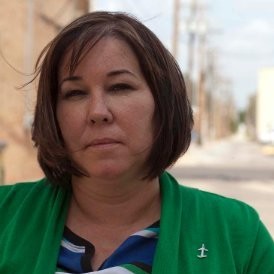
Dorothy Barnett, executive director of Climate + Energy Project, expressed disappointment that the bill will not advance this year.
Barnett said she hoped the deep freeze that led to rolling blackouts in Kansas last month would prompt action on an energy plan in Kansas.
“I’m hoping the circumstances of February’s extreme weather and the polar vortex will be an impetus for some forward-thinking legisators to imagine the value that a state energy plan could have in helping us prepare for future extreme weather events,” she said.
Barnett said she wished the Legislature would take a more comprehensive approach to energy intead of passing individual bills regulating the installation of power poles and banning cities from prohibiting natural gas hookups.
“If we were doing it right and we were doing it holistically, those things all would have been part of a comprehensive energy plan,” she said.
“Yet again,” she said, “we show we want to make legislation in a silo without thinking about it collectively.”







